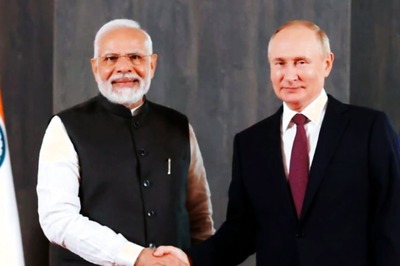
views
International law is not prepared to deal with cyberattacks even as the interconnected world faces threats on a scale never seen before, India has told the Security Council.
The world body is not ready to act on an anti-terrorism treaty dealing with cyber terrorism and even the Security Council's decisions that impose binding duties on member countries to combat terrorism do not mention cyber attacks, India's Permanent Representative Syed Akbaruddin said on Monday.
Challenging the international community, he asked: "Since we can discern the threat and there is an understandable global angst, can we look at options for strengthening international law against terrorist cyber attacks?"
And lowering the bar, he asked: "If we are not willing to negotiate a treaty on terrorist cyber attacks, can we at least start by clarification of the applicability of certain anti-terrorism treaties to terrorist cyber attacks?"Also read: China Beats All Other Countries in Online Shopping
Speaking at a Council debate on protecting critical infrastructure from terrorist attacks, Akbaruddin said: "Threats of attacks on an international stock exchange, a major dam, a nuclear power plant, possible sabotaging of oil/gas pipelines, air safety systems of airports, or potential blocking of an international canal or straits have much wider implications and pursuant complications far beyond national frontiers."
He slammed the world organisation for its inability to agree on the proposed Comprehensive Convention on International Terrorism which definitions of crimes that may be broad enough to include cyber attacks.
"The possibility of terrorist cyber attacks has not catalysed negotiations even after 20 years," he said.
Major financial hubs like Mumbai, New York and London have become terrorist targets because attacks on them can impact the nations' economies in several ways, he said.
"The investigations into the heinous terrorist attacks on Mumbai in 2008 revealed the impact its perpetrators wanted to have on the psyche and economy of the whole of India," he said.
"These attacks, including on a hospital, railway station and hotels were carefully planned and crafted from beyond our borders to have crippling effects not only on daily life in a bustling metropolis but targeted a country of a billion people."Also read: Cisco Launches 'Umbrella' - A Cloud Based Secure Internet Gateway


















Comments
0 comment